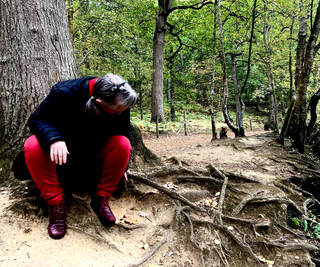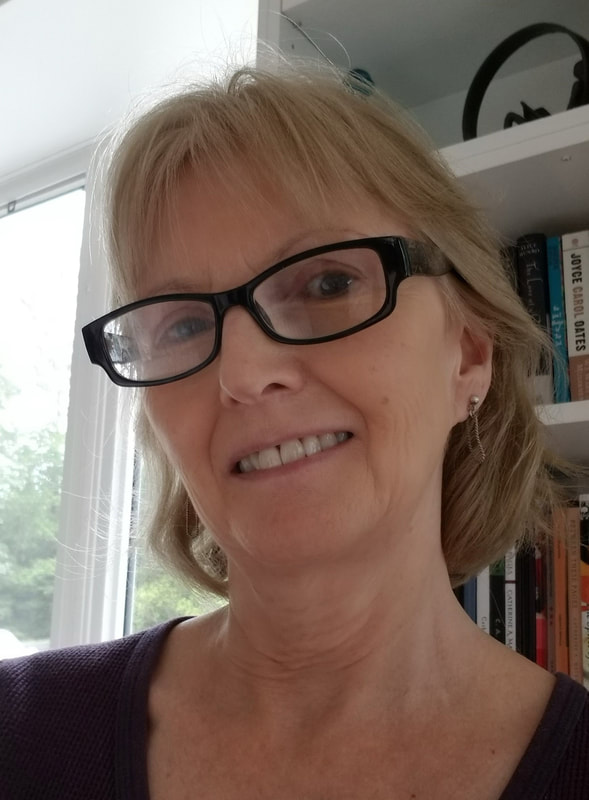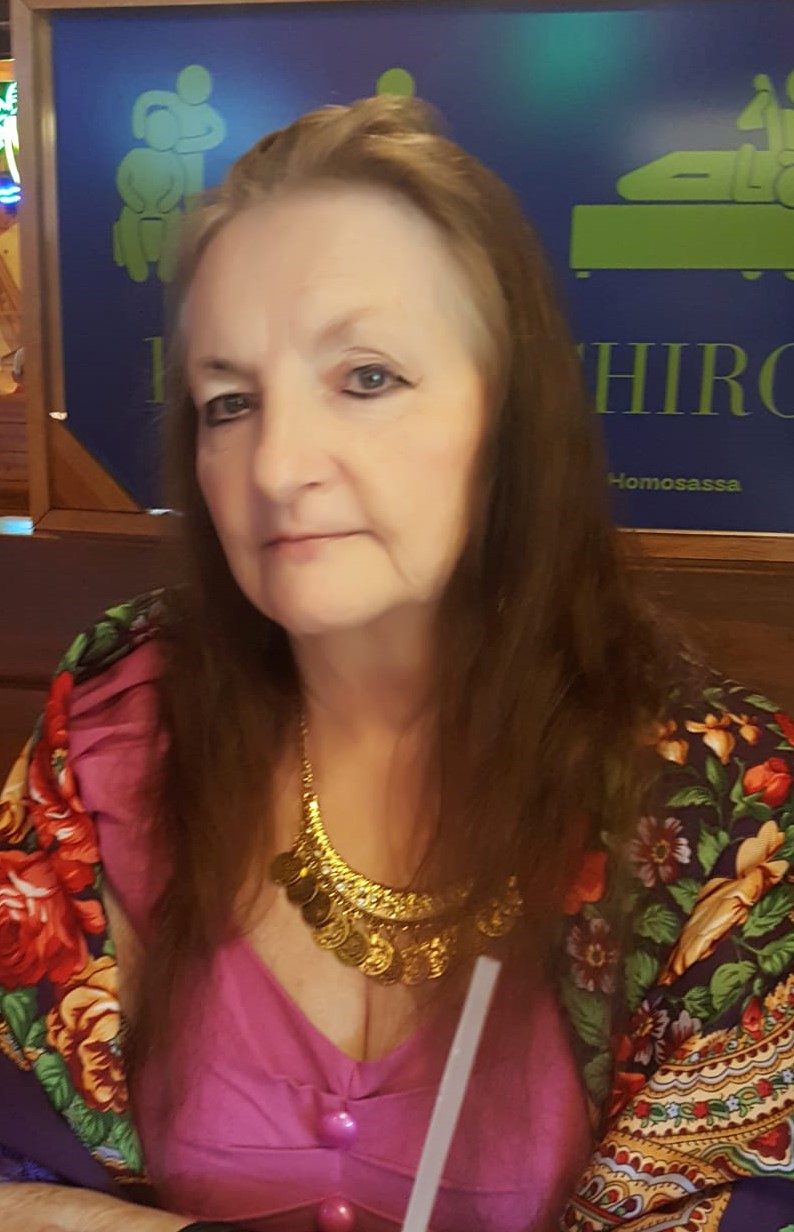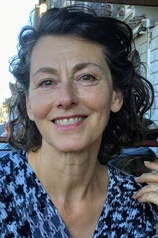|
Forest House by Jacqueline Gabbitas  Click here to listen to this story on the Kaidankai podcast. You know the forest well. You walk it everyday – oh, how you walk – long loping strides when the summer sun’s high, brisk steps kicking up leaves that litter the floor brown and gold, and those tiny, careful footfalls crunching through snow in the very stillness of winter. You walk it with your skin, eyes, nose, the minute anvil and hammer in your ears working hard to bring this forest’s voice to a place so deep inside it’s as if it has a language just for you. This day, the sun is warm. Spring has been in sway for almost a month now. And yet you will wish you had not left the house this morning. You will wish you hadn’t trusted the direction the little spaniel that you’d rescued from the dog’s home four years ago had chosen to take. You will even wish that you had never started the game she loves so much, the game in which, after she has fetched her ball a dozen times or so, you ask her: — Which way should we go? And every time, being a creature of ritual and habit and limping a little in her ageing bones, she will take the path to the left of the great fir tree, the shortest path back to the car and her dog treats. Except today she sees that the gate across the main path is open, and it is never open. She is a curious dog. You find it charming how normally she dislikes the gloom of the forest and will wait for you to catch her up, for you to step ahead and show her there is nothing to fear. The dark of the trees is empty of any danger but the chance of the snag of a root, or thorns from brambles, stings of nettles. Every time she does this you smile, chat away to her as if she were a child, cross her on the path, then anticipate the soft nudging on the backs of your legs to say that she is here and she is no longer afraid. You’ve never known a dog like her. But now this path is open. Broad and welcoming to a curious dog, with smells she hasn’t savoured before, markers from other dogs, other beasts. She wants to know what these markers mean. Her nose twitches in time with the wagging of her tail. This path is intriguing to you, also. You know the forest well but you have never crossed the borders of this gate before. Not in half a decade. You ask the dog – her name is Sally – if she is taking you on an adventure, not knowing as you do so there is truth in it. Some adventures should be left in books and on the tongues of storytellers. The morning continues with its warmth. The path is as wide as a tractor and you wonder if, indeed, tractors from the nearby farms had made use of it some long while ago – there are runnels the breadth of tyre tracks, overgrown with grass, daisies and dandelions but still easy enough to see. You walk in one in fact and your feet look small. Sally ambles a good five metres ahead. You take off your jacket and tie it round your waist. Soon, you will know this is a mistake. There seems no end to the path. In the distance you can see the village where your house is. Your little house with its uneven roof and stone walls. As you walk, you think about the carrots you’ve just planted and the broad beans, too. You’ll need to net them against the mice that nest in the compost heap or else your harvest will be small again this year. Except, the mice will not matter after today, and you will not taste those carrots. Off the path are deer tracks and badger trails – this one barely a trace, that one full of nettles, that other going in the wrong direction. Sally stops at the edge of the path and stares into the green depths of the forest. She drops her ball. Her nose twitches. Ears too. She barks once and sits waiting. She shares her glances between you and the trees. Her tail is still. As you approach, it starts slowly to wag, carving out a fan in the dust of the path. You call her a good dog, because she is a good dog. You stroke her head as you say: –– Which way now? She has stopped by a track overgrown but walkable. ––This way? you ask, knowing there is no other. It’s too far to walk back and Sally is tired and your feet ache. You wish you’d worn better shoes. Sally picks up her ball, drops it once more, rolls it in the dirt then picks it up again. She likes this grubby play even though it bemuses you, but she likes it better when you take the ball, slimy and wet from her maw, and throw it far enough to fetch but not too far for it to be a chore. You reach out but she snatches herself away and heads into the forest on the deer track. You stop. You think you can hear something. Familiar. Deep. It sounds like the wind in the trees, like birdsong, the scampering of squirrels, trundling of ants and termites, moles digging, seeds falling, blossoms breaking, like spiders burying themselves in leaf mould, like caterpillars dangling from birch branches. Like all of this and no one single thing of it. Like a language just for you. An entreaty. You will wish you had listened to it. Instead you follow your little dog along the overgrown track. The bracken’s already high. Nettles fat with leaves, the tiny vicious hairs on their stems threatening as you walk on, arms raised just a little. You worry about Sally’s eyes but she’s already a metre ahead. Ferns and brambles thicken on the edges of the track. The stealth of wild plants in spring is vigorous and awesome. When the trail thins to almost nothing you pause. Sally pauses, too. The little dog is shivering, you see. — Hey girl, you say, and she wags her tail, but before you can touch her she’s off. You smile at this, at how once she's outdoors she never lets you pat her but indoors she never leaves your side, watches TV in your lap, sleeps on your feet at night. You see her fur is proud around her shoulders and wonder at how excited she must be by this new-found territory but do not notice she has not once sniffed the ground or the grass or the trees. She is panting and so you think she must be hot. You look up in order to get your bearings. The car is that way, you say. You will wish you’d been more certain. The trees do not part in any wondrous fashion, the house isn’t revealed mysteriously. It’s just there. Rough red brick. Arched lintels. A single brick engraved with the name ‘Sherwood Colliery’ hunkers alone on a window ledge. Window frames metal and warped. You never knew there was a house in this forest but it made sense. It was a forest as old as the land, where hunters hunted, lumberjacks lumbered, and people… you’re not sure how people earned their livings from this place only that they must have – wood gatherers, foragers, poachers. It made sense there would be a lodge for the squire and later the steward. This is exciting. A ruined old house in the middle of your forest! Sally has gone on ahead. You can’t see her anymore. The way to the house is clear, the deer track merging with an old path that leads to a doorway. There’s still good oak in the frame but the door itself is gone, the threshold stone cracked and crumbling. You crouch, all the better to examine what kind of stone it is. A millipede scampers out, its red carapace shining in the gloom, two inches long and thick as a slip of string, its legs spiky and quick. You fall back, startled, and catch yourself before your hand is scraped by a nail, bent, blunt but jagged and red as black blood. You stand up but at the base of your neck is a feeling you haven’t felt since you were twelve. Tingling, disorienting, almost painful. It spreads around your face, stings your eyes. Bleeds down your back, cold, like rain in winter. It’s the feeling you used to have at the foot of the stairs come bedtime when the lights on the landing didn’t work and all that was ahead of you was darkness. — Sally? you call out, suddenly nervous. You hear snuffling in the background and her panting, steady and familiar. You’ll go land look for her, but first you need to shake off the feeling that she isn’t actually here. That she died a year ago to the day. — Sally? you call again. The dog barks once in response. The feeling vanishes, quick as light. You let out a breath, unsure of how long you were holding it. Step over the threshold of the ruined house. Into a Hallway. There’s a mirror to your left. When you look in it you can see yourself, clear as nightmares, along with the rest of the room behind you. Pictures on the walls of men and women, Edwardian and severe, a wooden staircase, sconces burning with little flames. You turn around and it’s all there – even a fireplace, its stack of wood waiting to be burned, its wrought iron hearth-set black and patient. The door covering the entryway is heavy and oak, pinned with iron clouts. And through it, you can see Sally crouching on the other side, her head on her paws, mithering and growling. The cramped little feeling comes back, gripping the back of your neck. Your fingers start to tingle. — Can I help you? A woman is standing at your side, her voice immediate and mellifluous. It’s as if you know her, you’ve always known her. Her voice has the same tenor as your own, the same deep tone. There’s even that little lilt in the way she ends the question, that little pause mid-line. You know she cannot be there, she isn’t there, and yet you can hear her as clear as the voice in your head. You look at her. She’s smiling. Her eyes, sharp and shining. In her hands is a dish-towel. She’s wearing a simple cream suit but you could have sworn when she first spoke you saw out the corner of your eye she was wearing a dress, old fashioned and blue with crinoline and hoop. She has pale lips, glossed but almost white, her make-up is muted. And as with the door, you can see through her to the trees of the forest, to Sally cowering and angry. — What…? you ask, but the answer to this question isn’t something you need. Not what, or who, or why, or where but how? How do you get out? The woman is still smiling. It’s a flat smile as if her lips have been pulled at the edges. You cannot see her teeth. You don’t know why but you want to see her teeth. Want to see them normal and white, shining with the spit of a living person. Even when she spoke you couldn’t see her teeth. She speaks again: — Is there something you need? — Need? you ask. And now the woman is dressed all in black. A long dress, almost to the floor, a veil almost to the bottom of her chin. She’s wearing gloves and in her hands is a pair of secateurs. — What are you doing in this house? she asks. — Why won’t you speak to me? Her voice is strained. — But I am speaking, you say. Sally’s whines are painful in your ears. She starts to howl. The woman notices her, steps to the door and opens it. The door is still oak, still pinned with iron clouts, but the paint around its jamb is now the colour of robin eggs, and there’s a fan of woven grass and pink flowers where the mirror should be. Sally doesn’t move. No more howling, no more whining. The woman crouches, and now she’s wearing jeans and a jumper, and reaches out a hand, longer and fatter than you expect it to be. — Hello, she says to the animal. Sally’s tail is stiff. — Hey!, you shout and step forward, breaking some sort of spell. Now the woman is behind you. —Ahh, there you are, she says. You can feel something real on your neck. Cold. You turn. You want to turn quickly. Want to show this woman that you are not afraid. But your body is like the rusted rudder on an ancient barge moving in slow, wrenching jerks. Your breath stays high in your chest as you face her. — You’ve come back, she says. She is so close you can’t see her, only feel her. Her breath is like the smell of the churchyard in the village after it rains. She is whiter than its marble headstones. Where her eyes are, there is shadow darkened by proximity. Her voice, sweet, envelopes you. — Back? you say. — Back home, she answers. — And you’ve brought your little dog again, I see. — Home? This isn’t home, you say. Your voice is cracking and uncertain but you manage to keep the two of you talking. You’re not sure that you want this conversation but you are sure that if you stop that will be the end of it. Sally starts mithering again. — Don’t be silly, says the woman in a melodic whisper. This close, cold pours over the skin of your face. — I’ve never been here before, you say. — You were here only yesterday, she snaps. — Yesterday? — Yes. Yes. She draws the word out as if she were tasting it. — I’ve never-- — Have you noticed, she says, — how the word yesterday starts on a yes? — Erm, I hadn’t thought of it, you say. — Isn’t that delightful? There’s movement in the shadows of the face in front of you. She’s smiling again, you can tell by her voice. Sally’s cries from over the doorway start up once more. Angry. Afraid. You step back. If you can see the woman clearly, you think, you will be able to make sense of this. But with each step you take she is there, the distance between you immutable. You feel like she is laughing at you. — What did we do? you say, firmly. — Do? she asks, and there is puzzlement in her voice. — If I was here yesterday, what did we do? — Yes. Yes, she says. ––I told you about the ghosts. I told you and you listened. — The ghosts? — The ghosts, yes. You are being silly, today, she says. The air is suddenly freezing. You feel it in your throat, on the backs of your wrists, on your cheeks. — Could you tell me again? you ask. You don’t know how to escape this. All you know is that you need to keep her talking. — This house is haunted, she whispers. — I see them. At night. In the daytime. Ghosts. Women. Always women, she says. Now her voice is hard at the edges. — Do they frighten you? you ask. — They used to, the woman answers. — And now? — Sometimes, she says. — Why are they here? — This house is haunted, she repeats. — By the houses it was built upon. — I don’t understand, you say. The woman’s face is impossible to read. — I see their deaths, she says. –– You see? —Strangulation. Childbirth. Poison. Old age. Consumption. Burning. Burning. Burning. Flood. I see them. The walls change, floors, trappings, but they? They stay the same. You’ve been moving slowly, but pause as she continues. — The heart of a woman my own age caves in, she says. — She takes a day to die and more than a week before they find her. You don’t know what to say, so you say nothing. She carries on. — I’m never sure when I will see them. When I’m baking. Reading. Listening to music. When I’m sewing. Drawing. Eating supper. Cleaning draws them to me, so I’ve stopped cleaning quite so much. — What do you do? you ask. You’re moving little by little now until your back is to the door again. You can hear the rigid strop, stropping of Sally’s tail beyond the threshold. Such a hopeful sound. — Do? the woman asks. –– There’s nothing I can do. I have to just watch them. They don’t speak, see. They make no sounds in fact. But now you’re here. We can watch them together. Maybe we could give them voices! And there was glee in the woman’s voice. — Maybe we could act out their deaths with them, screaming and howling as they scream, as they howl. Does that sound fun? — Sounds…terrifying, you say. — No, says the woman, firmly. –– Not if we’re together. You know the threshold of the door is behind you, its frame oak and solid even though the reality of the door has long since rotted. You know your dog is beyond it, chattering and barking. Only a few moments ago, surely only a few, you saw a millipede crawl from a crack in the flagstone, its carapace shiny and red. You nearly cut your hand. You know your forest is over that threshold. Deep and green and new. You step back towards it. Your jacket, wrapped tightly around your waist making a band of sweat even in the gelid air, snags on a blunt rusty nail red as black blood, and in the fractured light of the ruins it looks something like the long, fat finger of a woman’s hand. Jacqueline Gabbitas lives on a canal boat in the UK. She has published three short collections of poetry, Mid Lands (Hearing Eye), Earthworks and Small Grass (Stonewood Press) and her work has been featured in various magazines, including Poetry Review, anthologies such as the Forward Prize Anthology, and broadcast on BBC radio. She has won two Arts Council England awards, and is a Hawthornden Fellow. As a child, Jacqueline cut her teeth on ghost stories and fairytales (greedily reading the Armada Book of Ghost Stories, Poe, King, Koontz, Herbert and whoever she could get her hands on). During the first lockdown she returned to reading and writing ghost stories (especially focusing on stories written by women). She found it a way to try to understand the isolation and loss of contact many of us were feeling. Her stories can be found in New Ghost Stories IV (The Fiction Desk) and Unfeared: a podcast of ghost stories written by women, which she hosts. The ruins in ‘The Forest House’ exist. So does the nail.
0 Comments
Leave a Reply. |
A SPECIAL, SPECIAL THANKS TO THE JUDGES OF THE HAUNTED HORROR CONTEST:
Catherine A. MacKenzie's
writings are found in numerous print and online publications. She writes all genres but invariably veers toward the dark—so much so her late mother once asked, “Can’t you write anything happy?” (She can!) She’s published two novels: Wolves Don’t Knock and Mister Wolfe. Two volumes of grief poetry commemorate her late son Matthew: My Heart Is Broken and Broken Hearts Can’t Always Be Fixed. She has also published other books of poetry and short story compilations, all available on Amazon or from her. Her latest publication is an anthology with 75 authors: No One Should Kiss a Frog. She’s also compiling stories for two anthologies about loss. Check her website for submission details - http://writingwicket.wordpress.com Cathy lives in Halifax, Nova Scotia, Canada. Linda Sparks
is a published poet and author of 25 published books. Her stories have been featured on the Kaidankai podcast and by Sweetycat Press, Ravens Quoth Press, Clarendon House Publications, Spillwords, and other publications. She served as Editor for Valkyrie Magazine. She was selected as “Best In Collection” 2023 by Ravens Quoth Press and she also won the Emerald Award for her poem “Dancing Girl” awarded by Sweetycat Press. She prefers writing horror but also writes science fiction, paranormal mystery and fantasy. She lives with her family in Florida. Tricia Edwards
is Deputy Director for the Smithsonian Institution Traveling Exhibition Service and Smithsonian Affiliations (SITES | SA), where she provides executive leadership and direction for overall planning, development, and management of SITES | SA programs and activities. She is currently leading the organization in the implementation of a new strategic plan to catalyze public engagement and spark learning, enjoyment, and wonder by connecting the resources of the Smithsonian to a vital network of museums and other educational and cultural organizations. Prior to this role, she served as the Deputy Director for Smithsonian Affiliations and Interim Deputy Director for Exhibits, Finance & Administration for SITES. Bram Stoker Award nominated author and editor, Douglas Gwilym has been known to compose a weird-fiction rock opera or two. His short story "Year Six" is on Ellen Datlow's recommended reading list for Best Horror 14. He co-edits The Midnight Zone—forthcoming edition, Novus Monstrum, a collection of never-before-seen monsters, featuring original stories by greats, and new voices, in strange, dark fiction. He reads classics of the proto-Weird on YouTube and has been guest staff at Alpha Young Writers workshop. His short fiction appears in LampLight, Lucent Dreaming, Dark Horses, Shelter of Daylight, Tales from the Moonlit Path, Penumbric, Creepy podcast, and Tales to Terrify.
Linda Gould
hosts the Kaidankai. She is a journalist and author whose fiction and non-fiction work has appeared in outlets around the world. One of her fondest memories is hanging out summers in a tree or in the back corner of the library reading ghost stories. |




